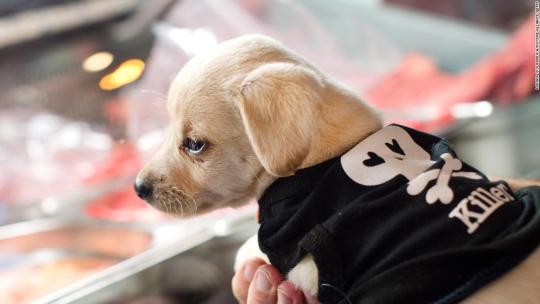
The results of the study, which was published Monday in the BMJ journal Vet Record, showed that it was “highly important” to handle raw dog food carefully and maintain good hygiene.
The researchers said that bacteria in the juices from raw meat dog food could splash and spread to other foods and surfaces, and dogs could transfer potentially harmful bacteria by “kissing” faces immediately after eating.
The study recommended that raw food not be fed to dogs in homes where infants, the elderly or others with compromised immune systems lived.
“This research offers further compelling evidence to support vets’ concerns about the potential animal and public health risks associated with feeding pets a raw meat-based diet,” said Daniella Dos Santos, junior vice president at the British Veterinary Association.
“We would advise any owner wanting to try a raw meat-based diet for their pet to first consult a veterinary surgeon.”
Get CNN Health’s weekly newsletter
Sign up here to get The Results Are In with Dr. Sanjay Gupta every Tuesday from the CNN Health team.
If you’re feeding your dog raw meat, the researchers said, keep it frozen until it’s used, and thaw it at a maximum of 10 degrees Celsius (50 degrees Fahrenheit). The thawed raw meat should be kept separate from human food and handled with separate kitchen equipment.
The raw-meat based dog food analyzed in the study contained uncooked meat, edible bones and organs from beef, chicken, lamb, turkey, pig, duck, reindeer or salmon. The food didn’t undergo any form of heat treatment to eliminate or reduce microbial content.
This content was originally published here.
from Tumblr https://ift.tt/2Y6CwP3
Comments
Post a Comment